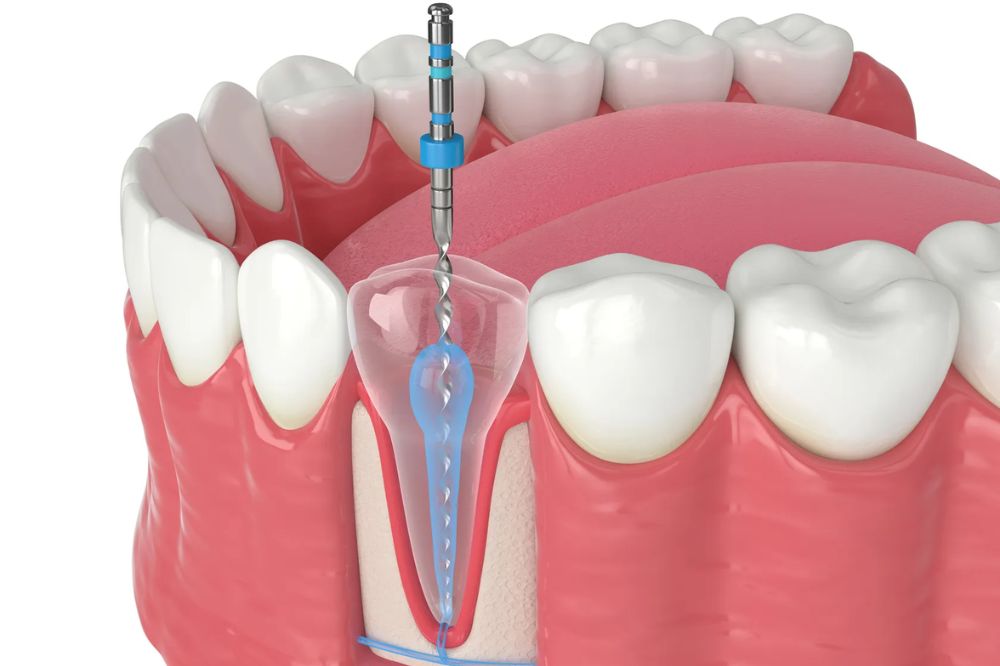Wisdom teeth are often removed when they cause pain, infection, crowding, or damage to other teeth.
As long as they are healthy, neglecting underlying infections may lead to problems down the road, sometimes much more serious and complex treatment may be needed, such as root canal treatment near you.
What Are Wisdom Teeth and Why Do They Cause Problems?
Wisdom teeth are molars that appear from ages 17-25. In some situations, they grow in with no issues, but for many, there is too little space in the mouth for them to grow normally, which can either lead to teeth growing at horrible angles or not coming up through the gums at all (impacted teeth).
The following conditions can happen as a result of wisdom teeth:
- Gum swelling and pain
- Difficulty opening your mouth fully
- Bad breath from trapped food and bacteria
- Infection and cyst formation
- Pressure that pushes other teeth out of place
If the above are not addressed promptly, serious harm can result to surrounding teeth, and sometimes require root canal treatment in Surrey, to rectify the problem.
When Do Dentists Recommend Wisdom Teeth Removal?
Dentists usually recommend removal when:
- The tooth is impacted or partially erupted.
- There’s ongoing pain or swelling.
- X-rays show the tooth will likely cause damage to other teeth.
- There’s a high risk of infection or decay.
A skilled Root Canal Dentist will also look at whether the wisdom tooth is affecting the roots or nerves of nearby teeth.
If the wisdom tooth causes decay in a neighbouring molar, the only way to save that tooth might be root canal therapy.
Can You Keep Wisdom Teeth If They Aren’t Causing Pain?
Sometimes, yes, but sometimes the wisdom teeth that don’t hurt may also cause a little damage.
Food and bacteria can easily get trapped around them, leading to cavities in nearby teeth. If those cavities reach the pulp (nerve) of the tooth, you might need root canal therapy near you to save it.
Signs to watch for even without pain:
- Swelling in the gums
- Difficulty cleaning the area with a toothbrush or floss
- Small pockets where food gets stuck
- Redness or bleeding
How Is Wisdom Tooth Removal Different From Other Extractions?
Wisdom tooth extraction can be more complicated because they lie at the back of the mouth and may be covered by the gums or jawbone.
The procedure may include:
- Local or general anesthesia for comfort
- Incisions in the gum to expose the tooth
- Removal of the tooth in sections may be easier
- Stitches will help with healing
Your dentist in Surrey will help you each step through the procedure and the recovery plan so you heal with the least amount of discomfort.
What Happens If You Avoid Wisdom Tooth Removal?
Neglecting issues related to your wisdom teeth can result in issues such as:
- Pain and swelling that worsen over time
- Infections spreading to other teeth and gums
- Misalignment of your bite
- Decay in nearby teeth sometimes requires a dentist near you to perform a root canal or extraction.
The longer you take to address the issue, the more challenging and expensive the treatment will become.
Wrapping Up!
Wisdom teeth seem harmless, but they can cause painful dental issues, and once they are removed, you’ll wish you had done it sooner.
Early removal can prevent us from some of the most painful procedures, like the need for root canals or crowns and the infections that come with not removing them early.
If you are unsure about whether you need to have your wisdom teeth removed, call to make an appointment with Smile 64 Clayton Dental.
Our professional and experienced team will examine your mouth, take X-rays of the area, and recommend the most comfortable and safest options to aid in your dental health for the long term.

